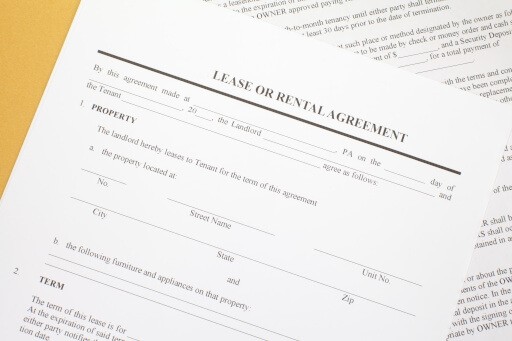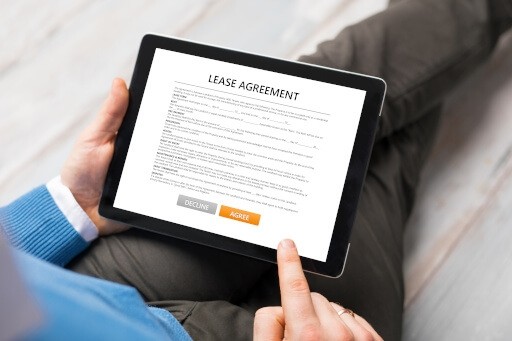
When faced with a request to negotiate a lease, landlords must carefully weigh the potential benefits and risks to make an informed decision. The goal is to preserve the profitability and stability of the property while fostering a positive relationship with tenants. Lease negotiations may occur with a first-time lease or at the lease renewal phase. Let’s examine common lease changes that tenants request most often, along with key factors and strategies to consider in navigating this process effectively.
Types of Requested Lease Changes
Monthly rent rate
A tenant may ask for a reduction in the rent, especially in slower rental markets or in exchange for a longer lease agreement. A tenant who is willing to assume certain responsibilities, like minor repairs or yard care, might ask for a monthly rent discount in exchange. Someone who is considering a lease renewal might request an extension of the current monthly rent rate.
Lease terms
Tenants may request modifications to the lease length, preferring shorter-term leases for flexibility or longer leases to lock in rental rates. Short-term leases are often preferred by tenants who value flexibility, such as those who plan to relocate soon for work, are unsure about their long-term living situation, or simply prefer not to commit to a lengthy rental agreement. On the other hand, some tenants request longer-term leases to secure a stable living arrangement or lock in a consistent rental rate, providing them with financial predictability.
Property modifications
Modification requests are often tied to a tenant’s comfort, specific needs, or the desire to improve the property's overall functionality. For instance, a tenant might ask for updates such as installing energy-efficient appliances or adding air conditioning to make the space more comfortable and livable. These requests are more common in cases where the property is older or lacks certain conveniences.
Occupancy or pet policies
Requests to allow roommates, family members, or pets not originally included in the lease are common. Tenants make these requests for a variety of reasons, often centered around financial needs, companionship, or changes in their personal lives. Financially, adding a roommate can help tenants share living expenses, such as rent and utilities, making the arrangement more affordable. This is especially common in situations where a tenant experiences a loss of income or when housing costs increase beyond what they can comfortably manage alone.
Flexible payment schedules
Tenants may ask for adjustments to payment due dates to line up with their pay schedules, or they may make a request for a specific accommodation like splitting the security deposit into smaller payments. These requests often stem from tenants wanting to avoid late fees or financial strain by better aligning their obligations with their income patterns. For many, living paycheck to paycheck makes it challenging to meet traditional payment deadlines.
When It’s Beneficial to Negotiate
Landlords should assess lease change requests on a case-by-case basis to determine whether accommodating the requests will align with their business goals. Every concession you make should align with your bottom line. Knowledge of your tenant’s situation is a powerful tool in negotiations. Whether the request involves financial relief, flexibility in lease terms, or property improvements, having context can help you develop solutions that cater to their needs without overly compromising your priorities. Below are a few examples where negotiating can be advantageous to landlords:
Long-term tenants
When a tenant seeks a rent reduction for committing to a long-term lease, it may be worth considering. Long-term tenants can reduce turnover costs, such as advertising, cleaning, and re-leasing expenses. Retaining good tenants—especially if they're low-maintenance—can be more cost-effective than having any turnovers or vacancies.
Market conditions
Monitoring local trends, such as shifts in employment opportunities or population growth, can provide valuable insights into potential changes in rental demand. If demand in your local rental market is low, being flexible with leases or offering small concessions can help secure reliable tenants and avoid extended vacancy periods. Even in a high-demand market, retaining a good tenant might outweigh the hassle of going through a new pile of rental applications.
Property value
Requests for upgrades or modifications that add value to the property—such as modern appliances or better landscaping—can be a win-win. Even so, evaluate whether the changes are worthwhile financially. It’s important to weigh the upfront costs against potential rent increases or overall property value improvements. Over the long term, consistent upgrades can enhance the property’s resale value, ensuring it remains competitive in the market.
Responsible tenants
If a prospective tenant demonstrates a solid rental history and favorable qualifications, landlords may find it worthwhile to negotiate slightly lower rent or flexible terms to secure a dependable renter. Reliable tenants often take better care of the property, which can reduce the costs of maintenance and repairs over time. They also add to the stability of your rental property and provide peace of mind.
Strategies for Effective Negotiation
Being well-prepared in advance is crucial for landlords to negotiate effectively and ensure they achieve a fair agreement that aligns with their financial goals. Tenants are more likely to agree to your terms if you provide clear, evidence-based reasoning. Research your local rental market to ensure your proposals and counteroffers are competitive. Here are essential steps you should consider in preparation for productive lease negotiations with tenants.
Set clear boundaries
Know your bottom line and establish non-negotiable terms before entering discussions. This helps avoid agreeing to terms that could negatively affect your profitability during the length of the lease. The foundation of any successful negotiation is clear, respectful, and open communication. Before entering negotiations, set the tone for the discussion by ensuring a professional and collaborative exchange.
Be open to compromise
While standing firm on critical points, show flexibility on less critical details. Find parts of the lease where you can compromise. Examples include offering a modest rent discount in exchange for a longer lease term or agreeing to minor property updates like adding curtains or repainting. Also, granting minor concessions, like a free parking pass, a free carpet cleaning upon request, or flexible move-in dates, can help build trust.
Put all lease changes in writing
Never rely on verbal agreements during or after negotiations. Any changes should be documented and signed (or initialed) by both sides to ensure clarity and legal protection. Clear documentation minimizes disputes and provides a reliable reference for both parties. Update the lease document to reflect all negotiated terms, such as adjusted rent amounts, allowed modifications, or policy exceptions. Provide the tenant with a copy of the finalized agreement.
Consider the long-term impact
Evaluate how accommodating a tenant’s requests will affect you financially and operationally. Avoid short-term fixes that could lead to issues further down the line. If you are unable to make a tenant’s desired lease change, show empathy. Offer alternative solutions or compromises that may meet their needs without overextending your resources. This approach shows you value their concerns while maintaining a business stance.
Lease negotiations don’t have to be stressful. Effective communication, understanding tenant needs, and aligning your financial goals with market conditions are core to creating sustainable agreements. Negotiating effectively with tenants can lead to stronger relationships, reduced turnovers, and enhanced property management. By balancing your goals as a landlord, you can create a lease agreement that works well for you and the tenant.
Apartments.com provides free rental tools that can help you create and manage your property’s lease agreement online. With our user-friendly lease wizard, negotiated changes to the lease can be saved, emailed, and signed with just a few clicks of the mouse — without having to create a new lease from scratch!











